Submitted by WA Contents
Five rectangular volumes rotating around a fixed pivot point form BIG-designed educational building
United States Architecture News - Nov 01, 2019 - 16:03 32778 views
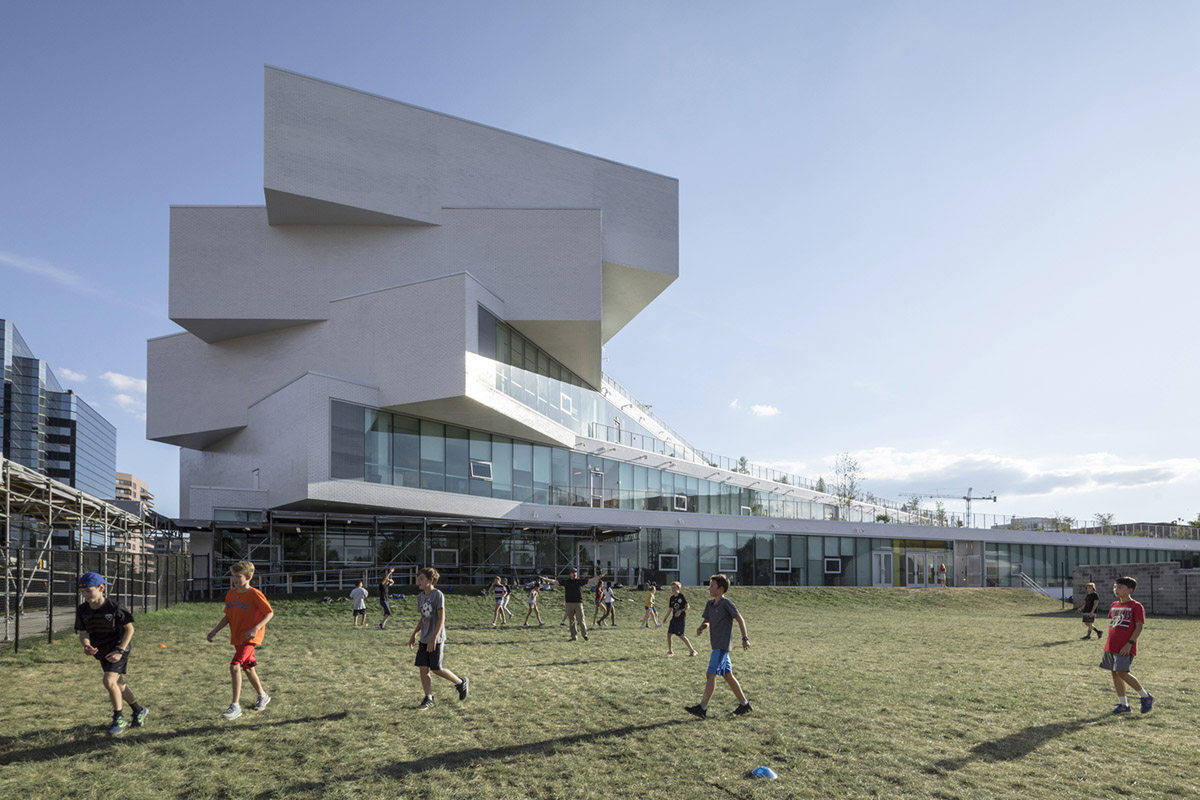
Bjarke Ingels' firm BIG has used five rectangular volumes rotating around a fixed pivot point to design this educational building in Arlington, Virginia, United States.
Named The Heights Building, the 16,700-square-metre building merges two existing secondary schools – the H-B Woodlawn Program and the Eunice Kennedy Shriver Program – into a new building to accommodate an expected enrollment of up to 775 students.
Located along Arlington’s Rosslyn-Ballston corridor, BIG's building is designed as a cascade of green terraces fanning from a central axis, addressing the academic needs of Arlington’s two county-wide school programs while forming a vertical community within its dense urban context.
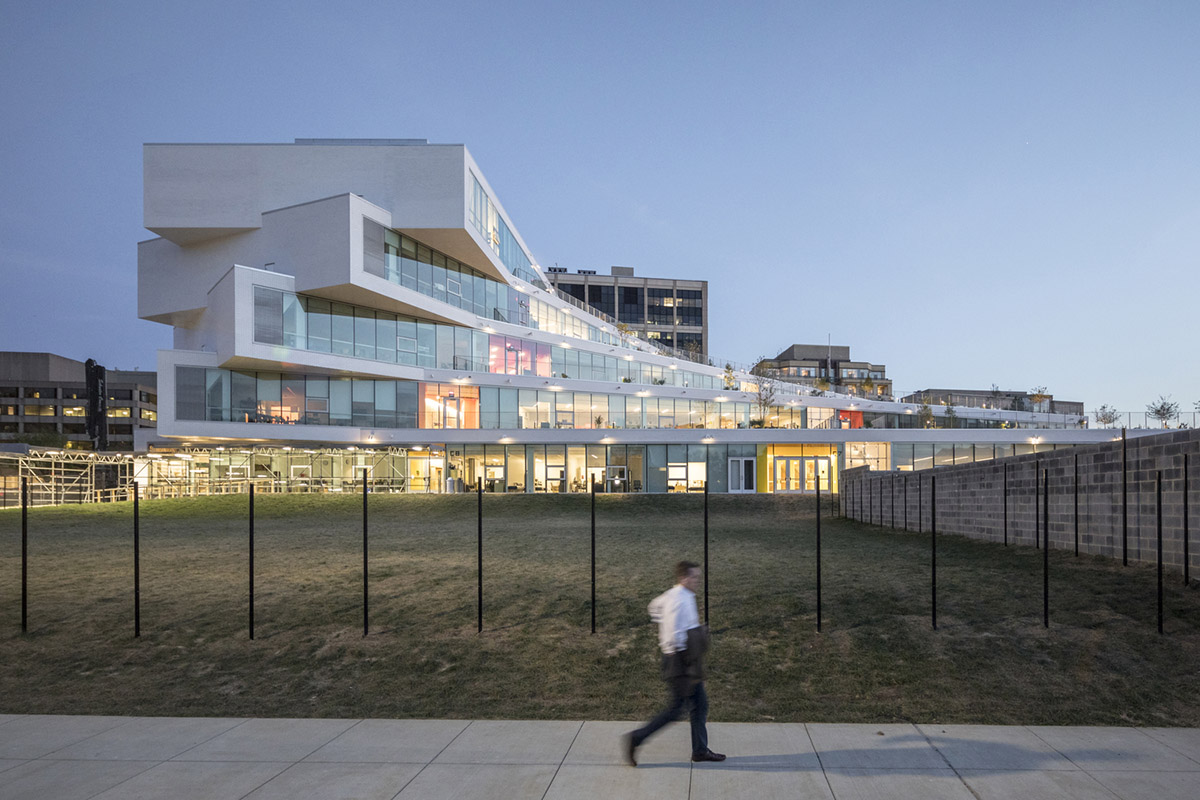
BIG closely worked with Arlington Public Schools (APS), WRAP (West Rosslyn Area Plan) and the Arlington community on the project, the design supports both H-B Woodlawn’s visual and performing arts-focused curricula and Shriver’s extensive resources for students with specialized educational needs. The Heights is currently on track to achieve LEED Gold.

Situated within a compact urban site bounded by roads on three sides and a portion of Rosslyn Highlands Park, The Heights is conceived as a stack of five rectangular floorplates that rotate around a fixed pivot point, maintaining the community feeling and spatial efficiencies of a one-story school.
Described as "a new landscape for learning" by BIG, green terraces above each floor become an extension of the classroom, creating an indoor-outdoor learning landscape for both students and teachers — an educational oasis rather than a traditional school setting.
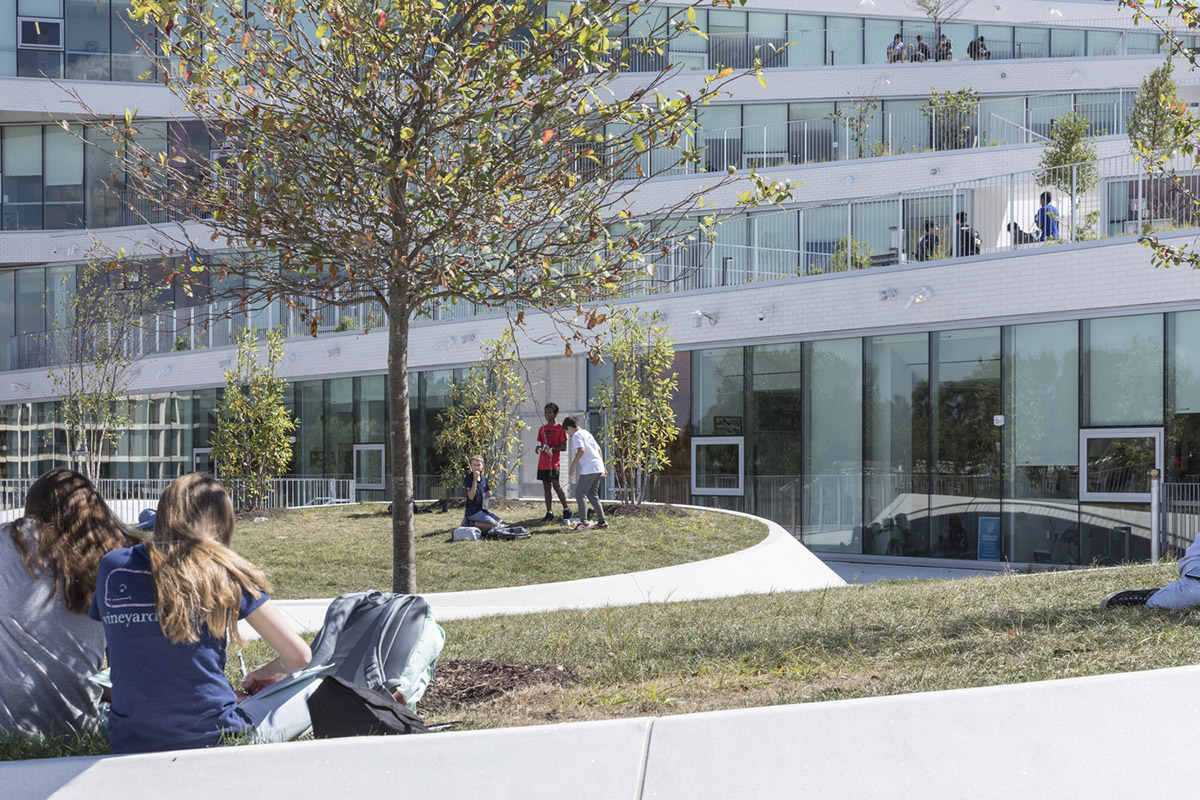
A rotating central staircase cuts through the interior of the building to connect the four-tiered terraces, allowing students to circulate outside and forge a stronger bond between the neighborhood and the school.
While the upper terraces are more suitable for intimate classes and quiet study areas, the spacious first terrace and 1,737-square-metre recreation field also serve as public event venues for school-wide and neighborhood activities.
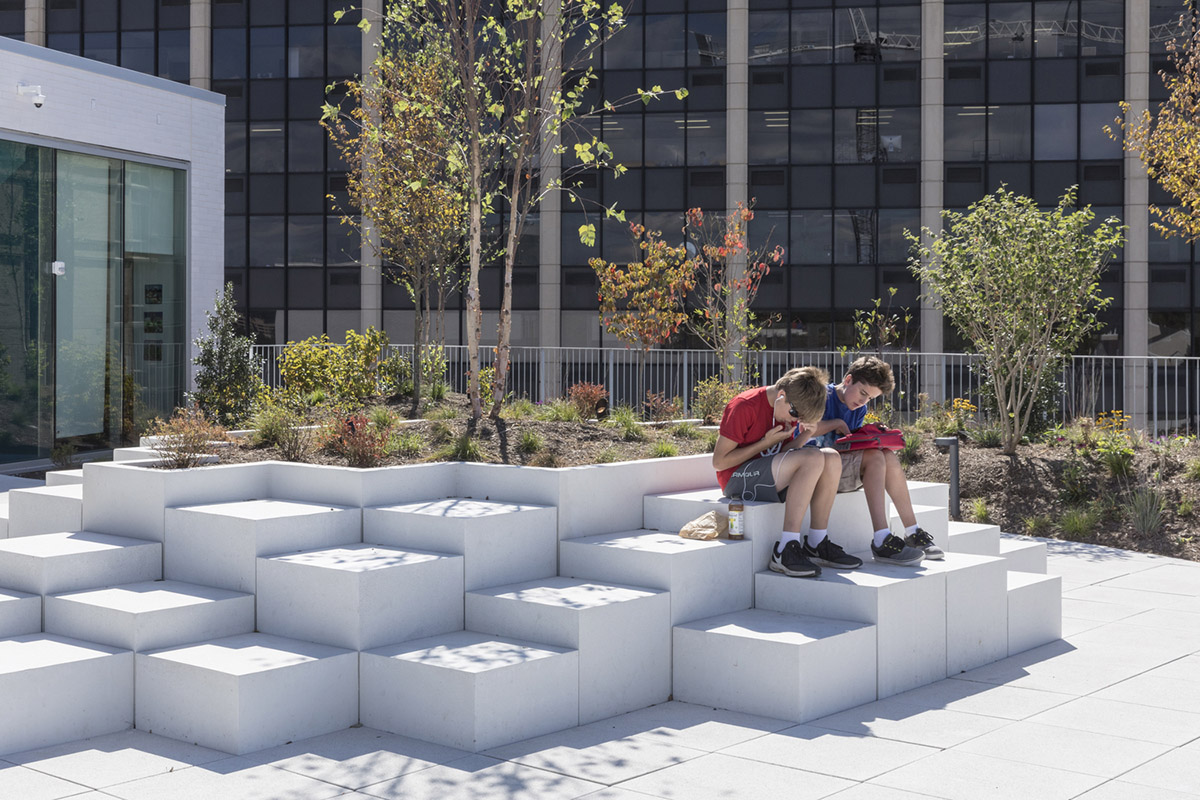
"From Wilson Boulevard, students, teachers, and staff are greeted by a triple-height lobby with stepped seating that doubles as an indoor gathering space for both student assemblies and public gatherings," said BIG in its project description.
"Many of the school’s common spaces, including the 400-seat auditorium, main gymnasium, library, reception, and cafeteria, are centrally located and directly adjacent to the lobby."
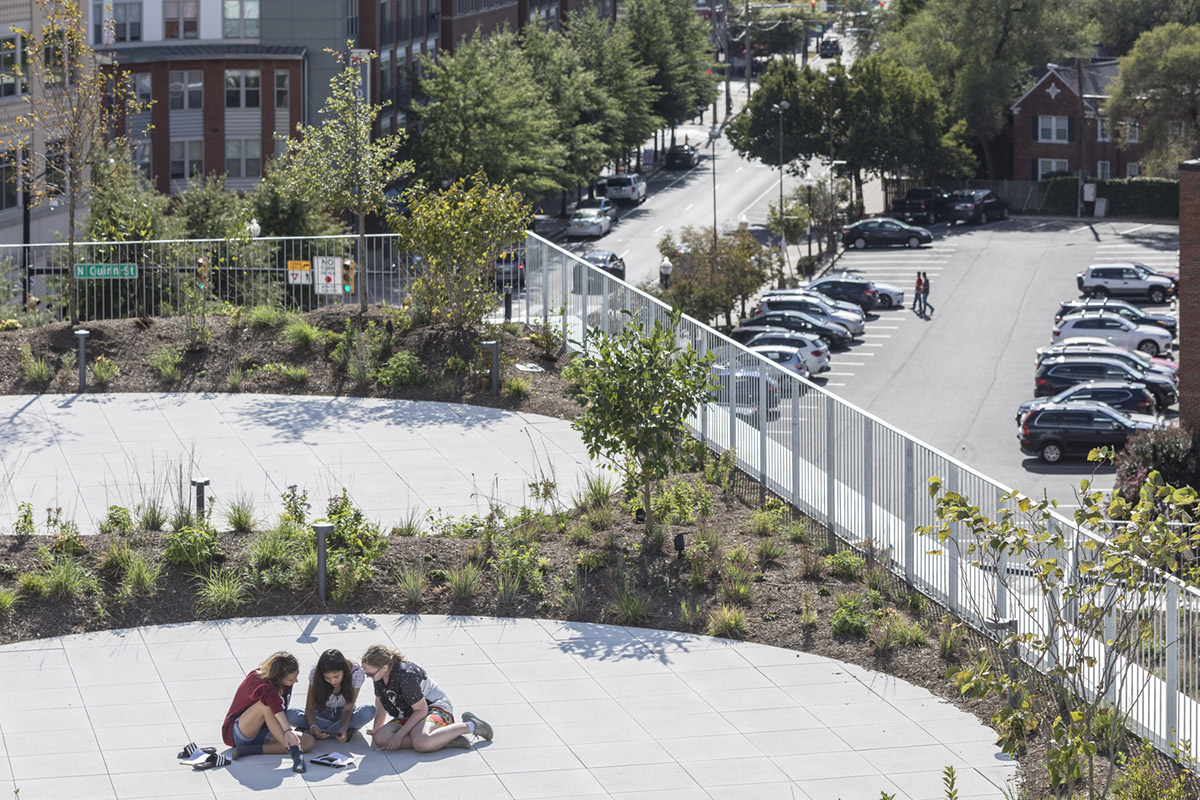
Easy accessibility to the community-oriented programs hosted in the school encourages public interaction throughout the building, creating a welcoming environment while heightening the visual connectivity between the shared spaces. Other specialized student spaces include an art studio, science and robotic labs, music rehearsal rooms and two performing arts theaters.
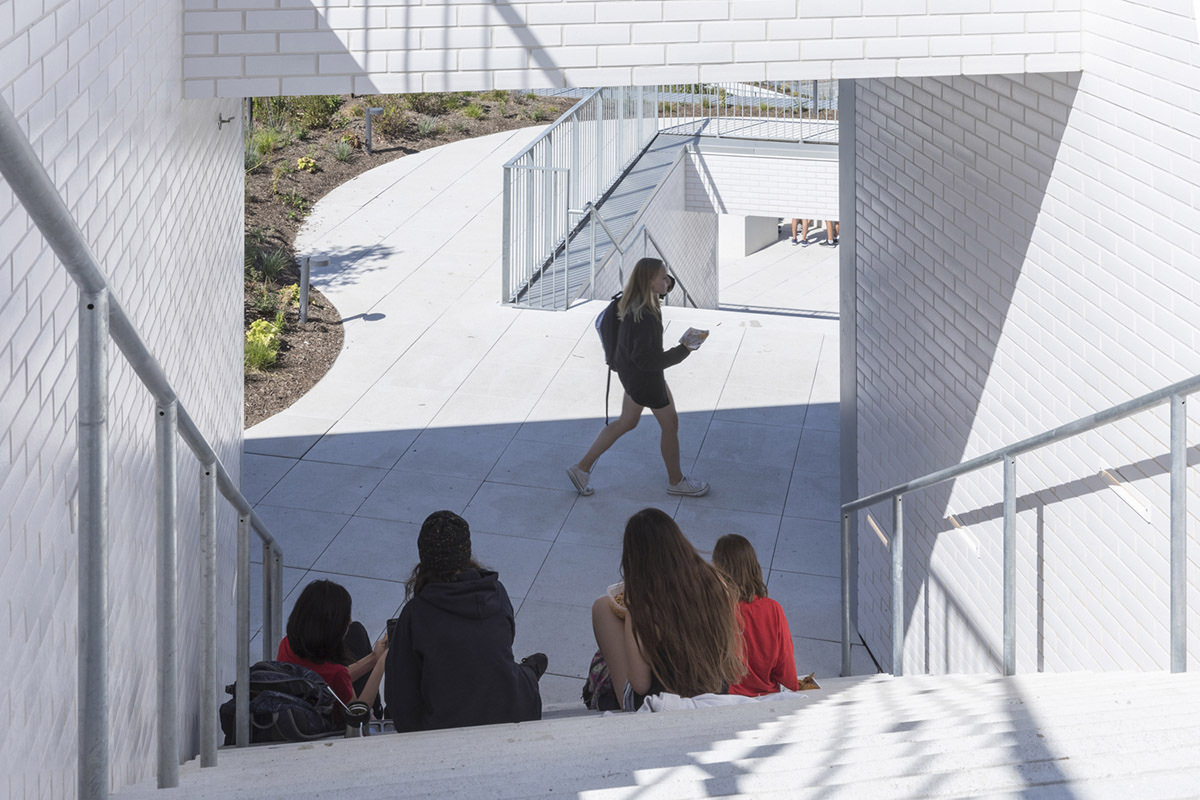
The classroom bars serve as the primary organizing elements, surrounding a central vertical core that contains the elevators, stairs, and bathrooms. As students enter from the central staircase, they are greeted by an expanded gradient of the color spectrum: each classroom bar is defined by its own color, combining intuitive wayfinding with a vibrant social atmosphere from the ground to the sky.
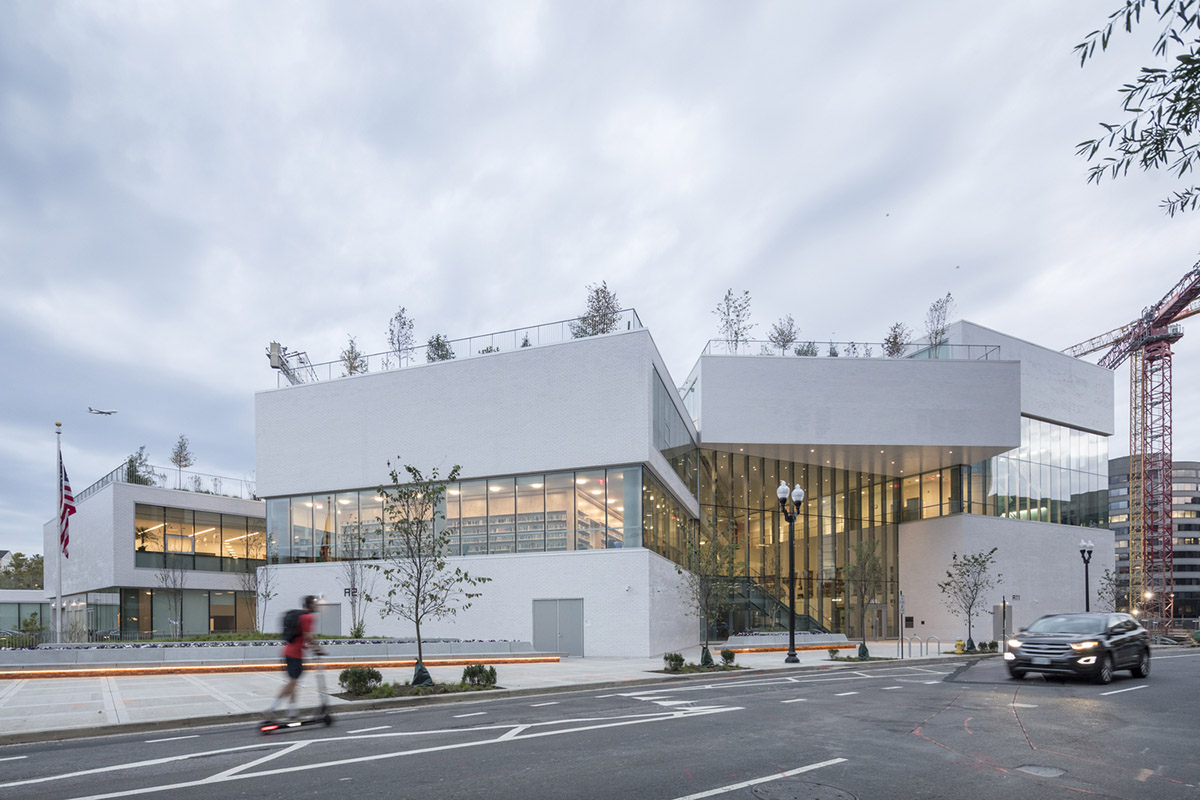
The Shriver Program providing special education for students aged 11 to 22 occupy two floors of the building accessible from the ground floor, and have specialized spaces dedicated to support APS’ Functional Life Skills program as well as privacy and ease of accessibility: the gymnasium, courtyard, occupational physical therapy suite, and sensory cottage are designed to aid in sensory processing.
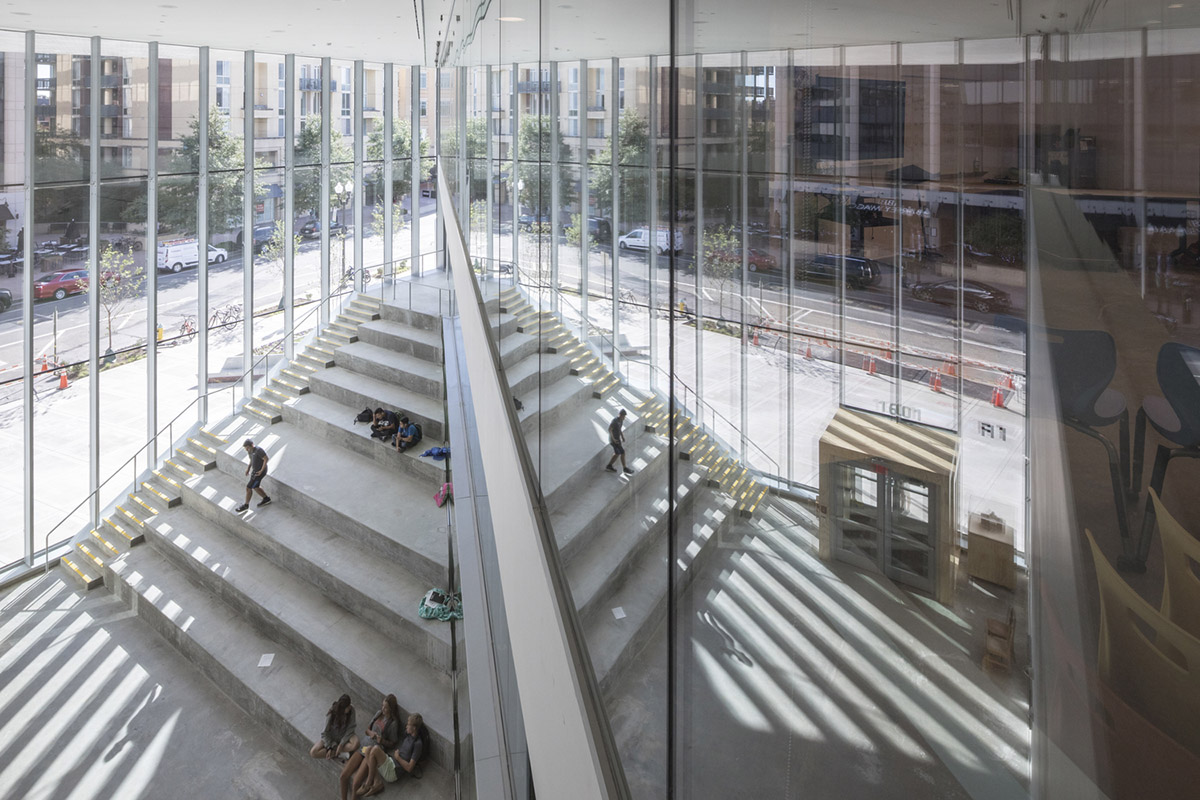
The Heights’ exterior is materialized in a graceful white glazed brick to unify the five volumes and highlight the oblique angles of the fanning classroom bars, allowing the sculptural form, the energy and the activity of the inside to take center stage. In keeping the surrounding neighborhood and former Wilson School in mind, the building’s material palette pays homage to the historical architecture of Old Town Alexandria.
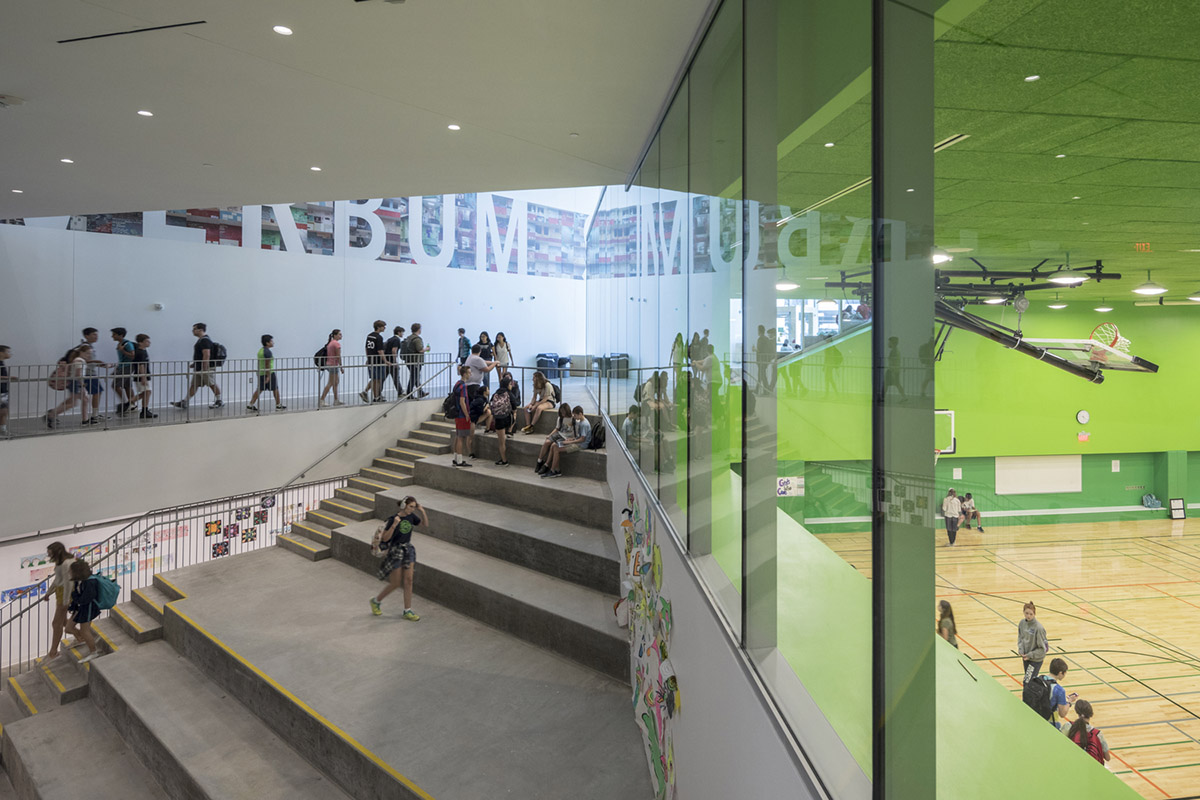
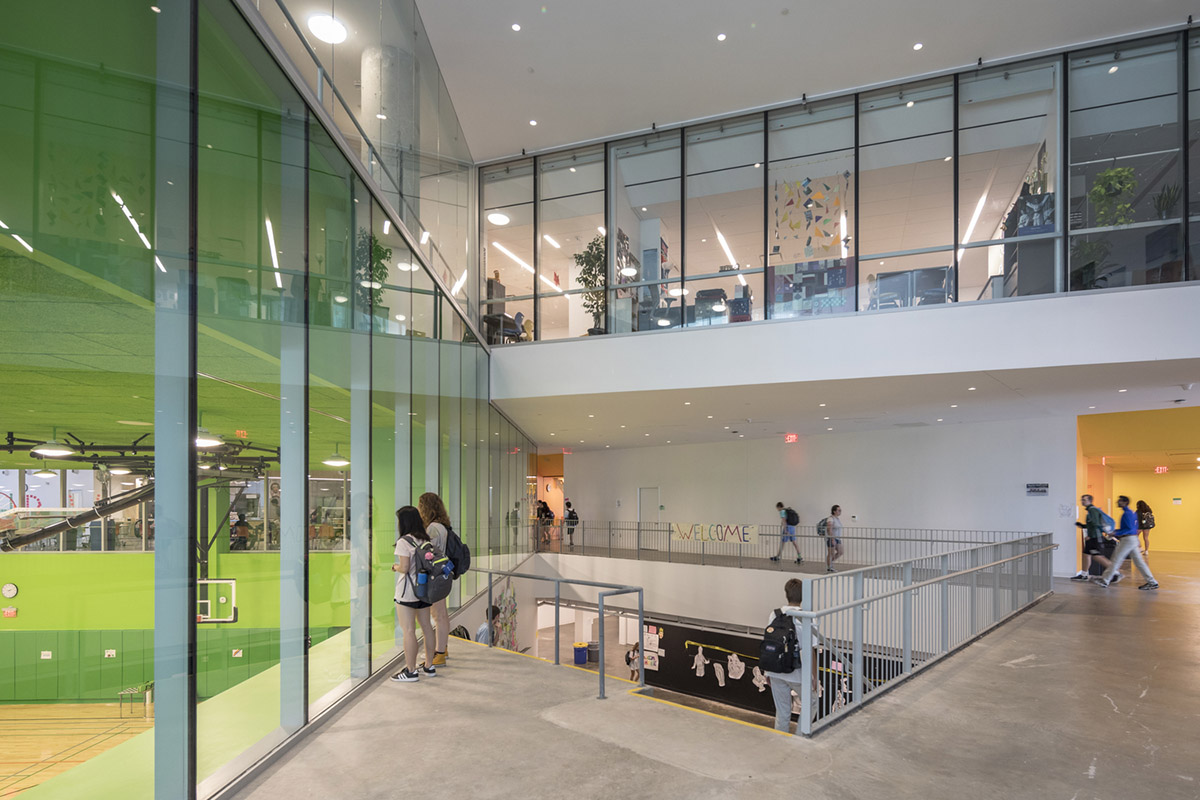
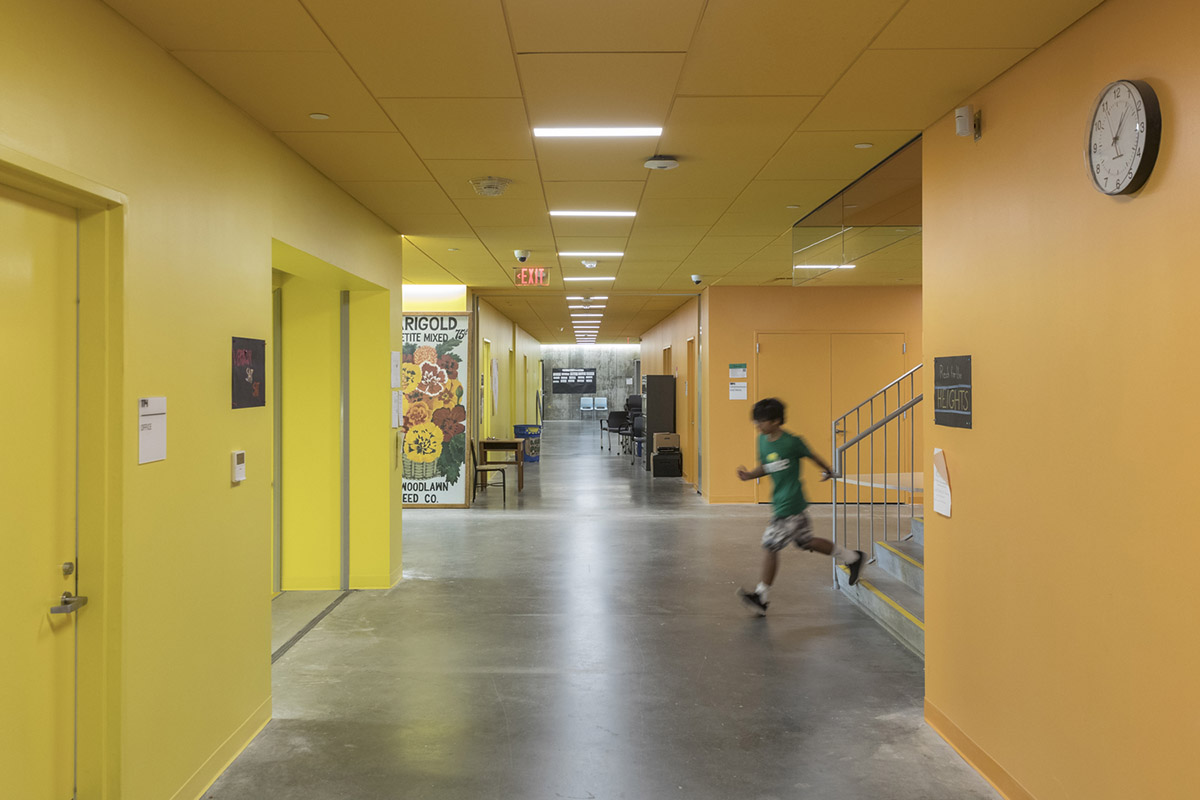
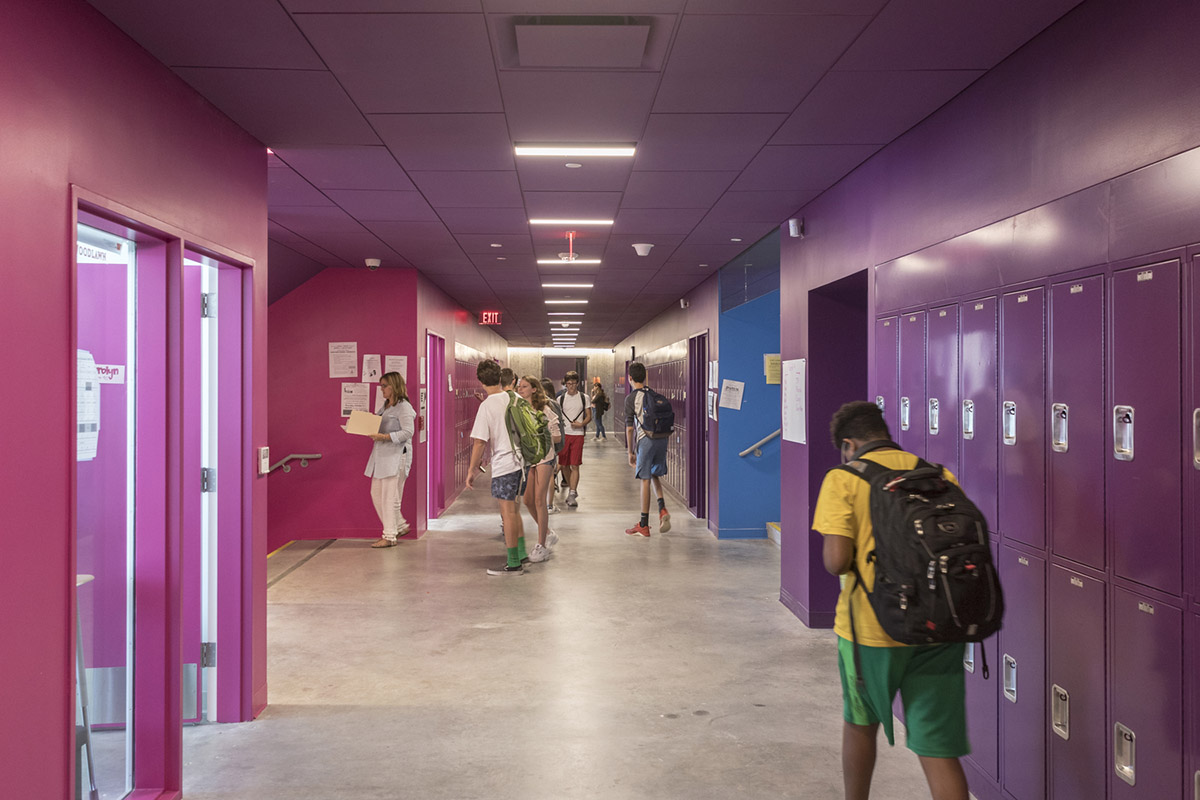
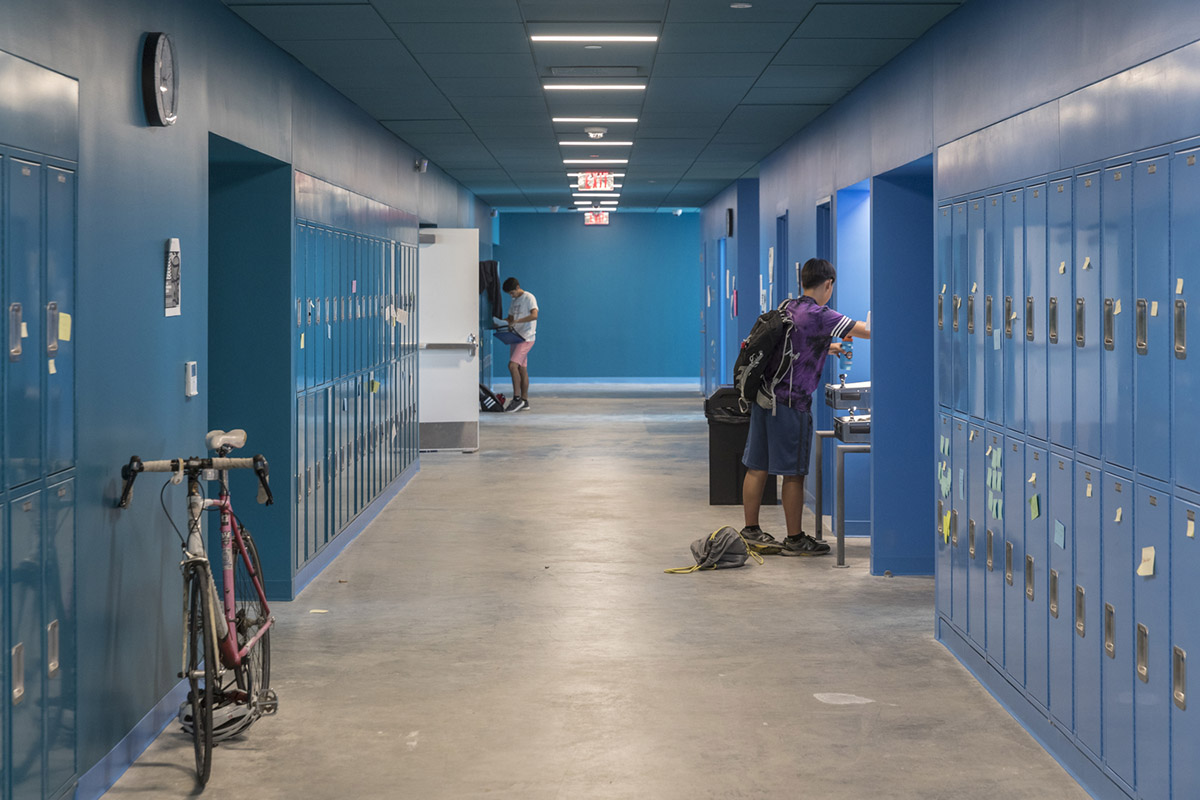
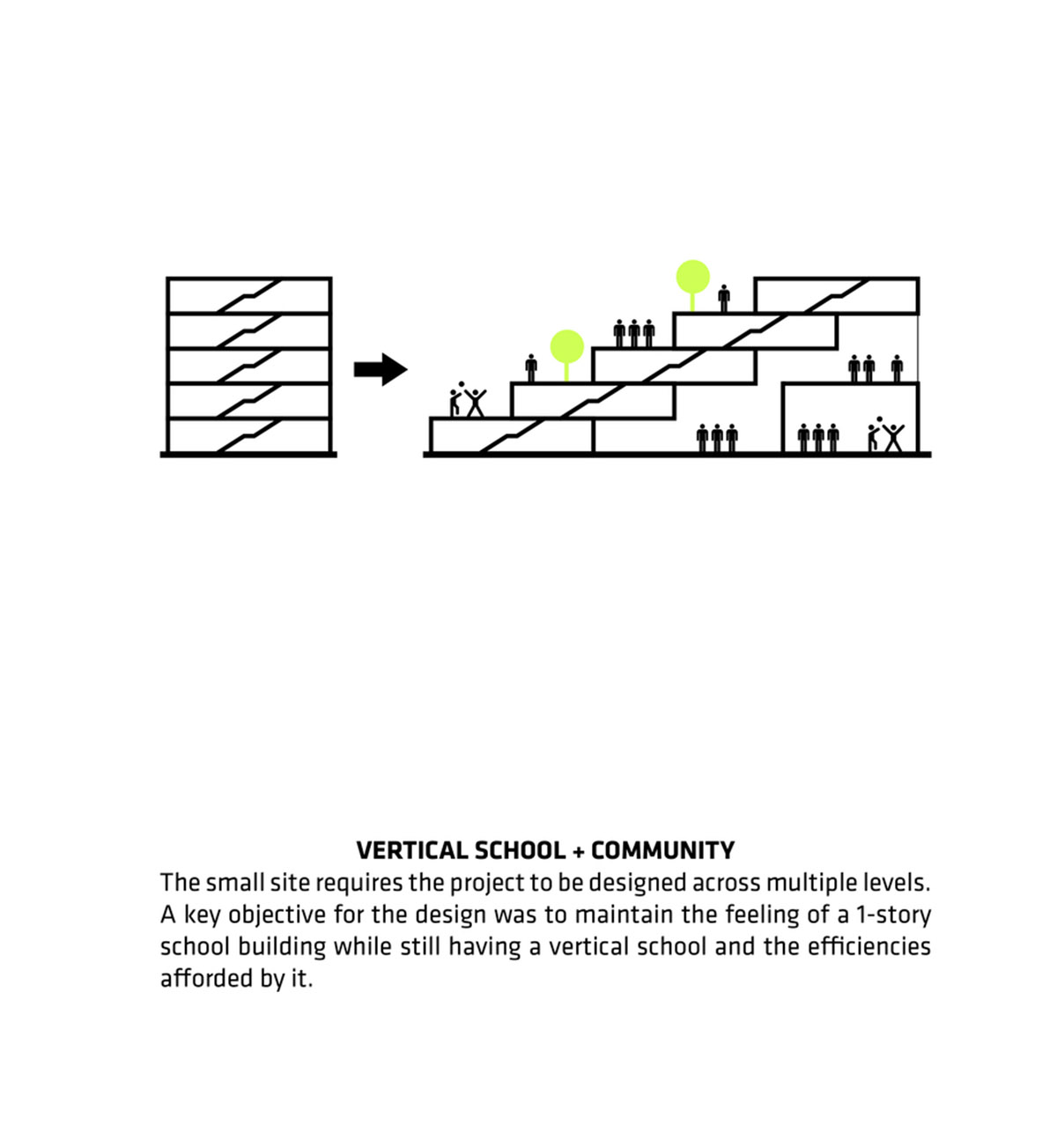
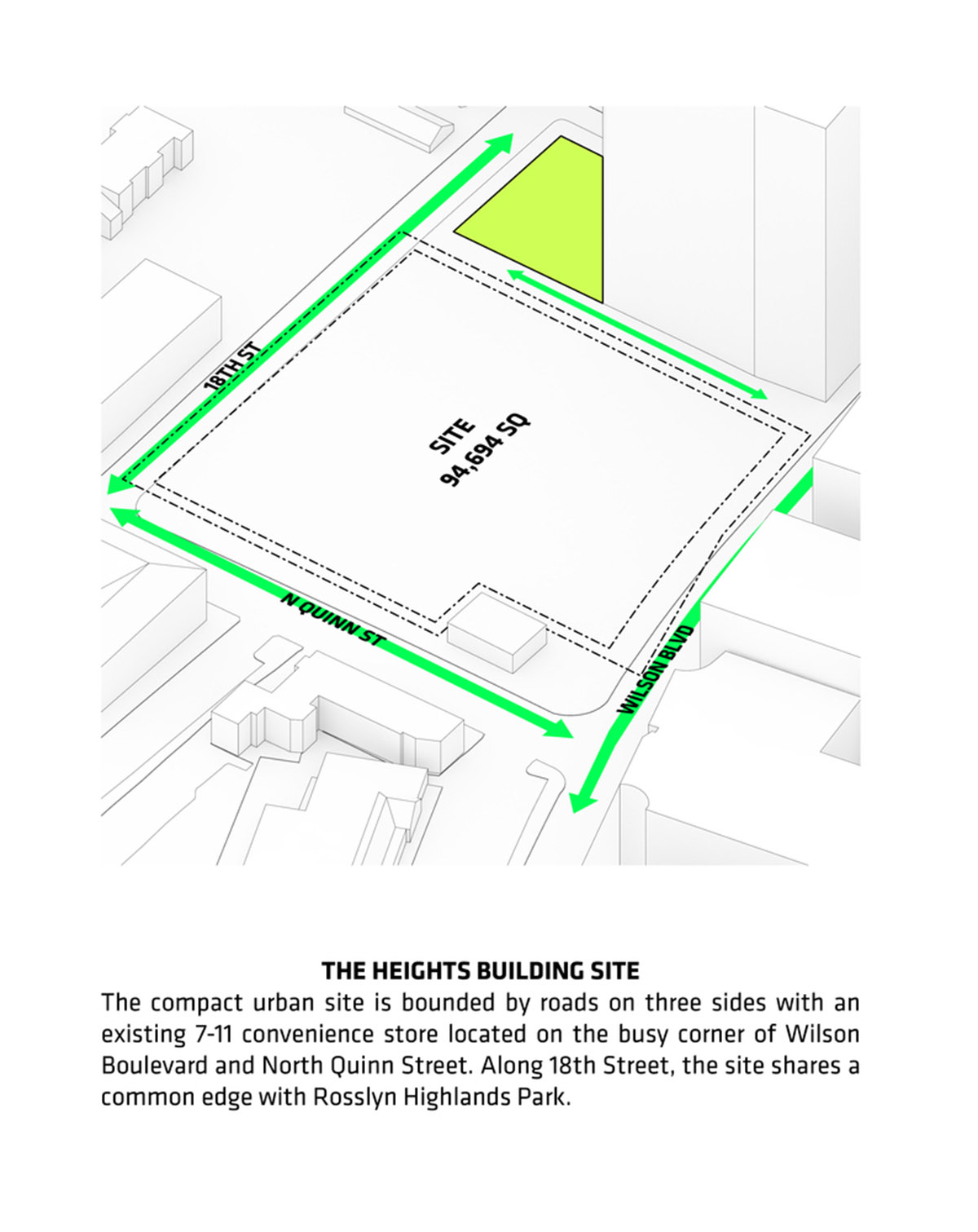
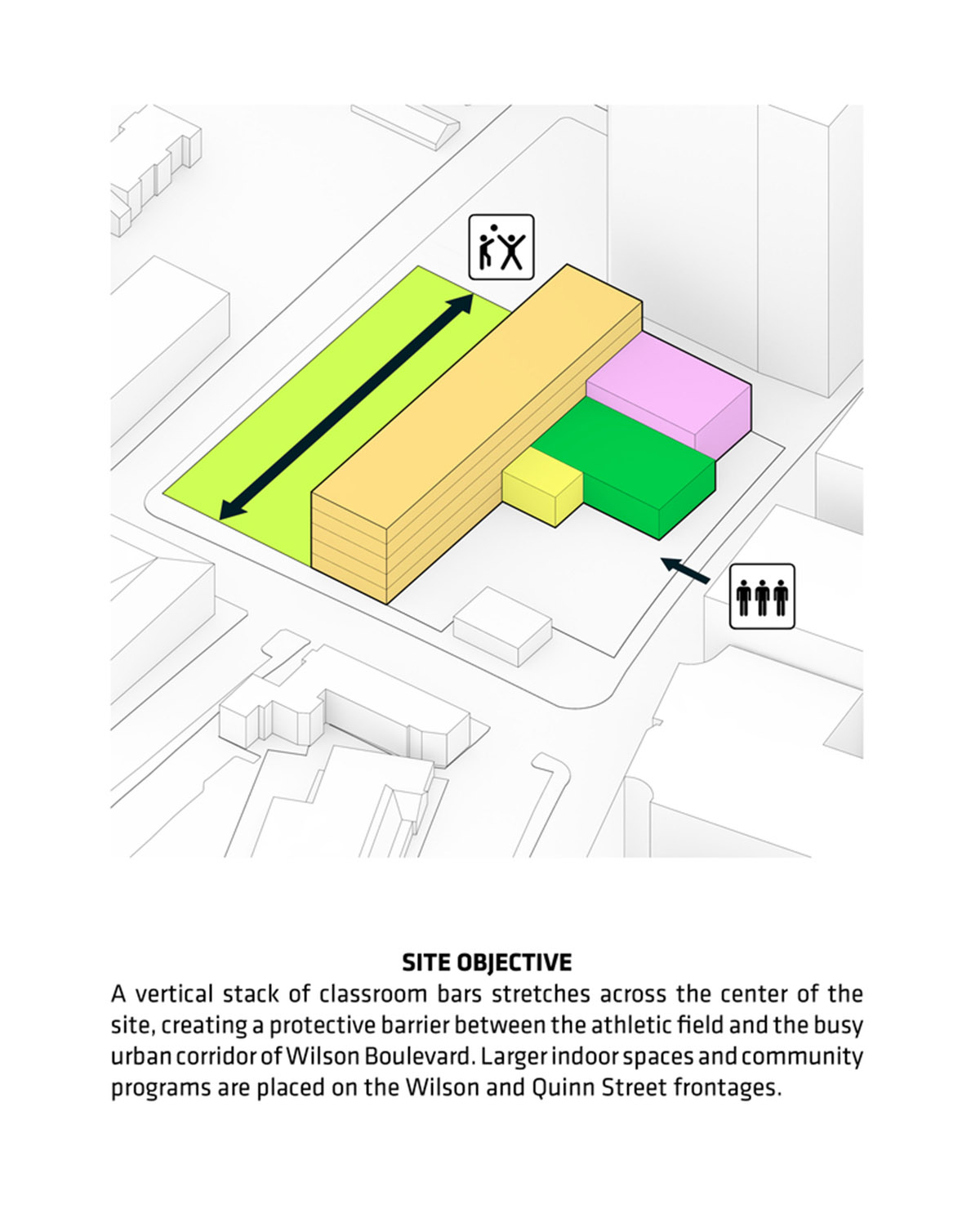
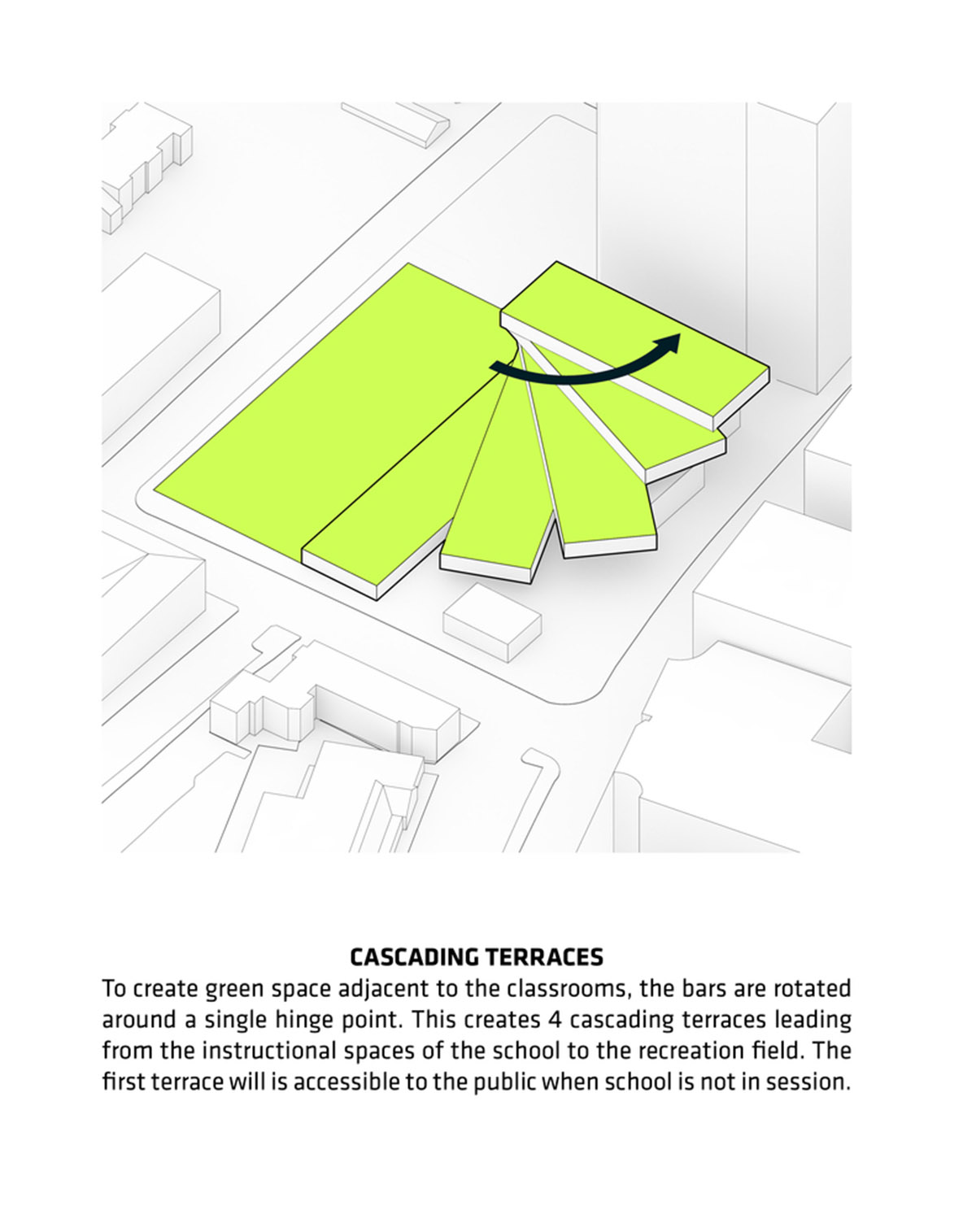
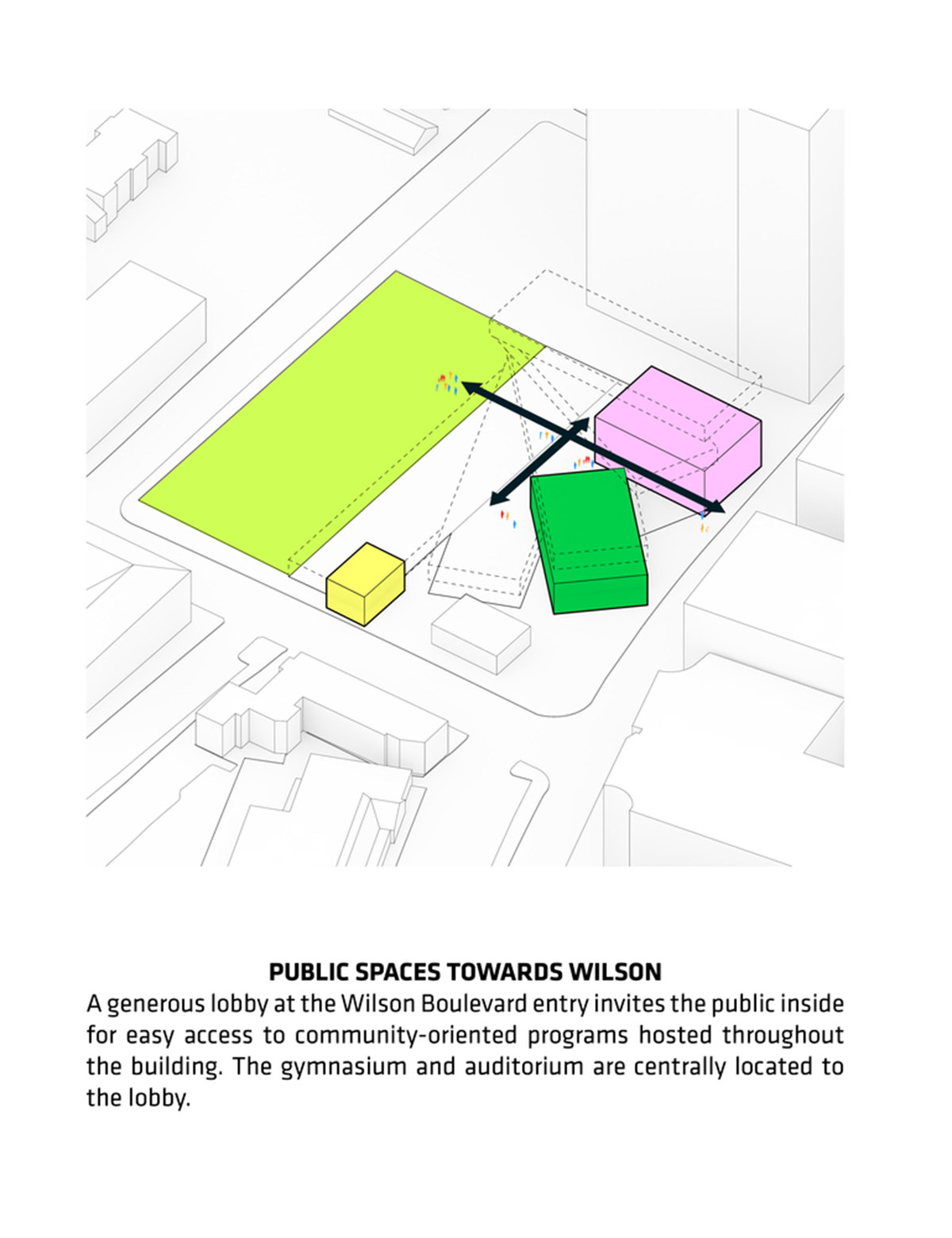
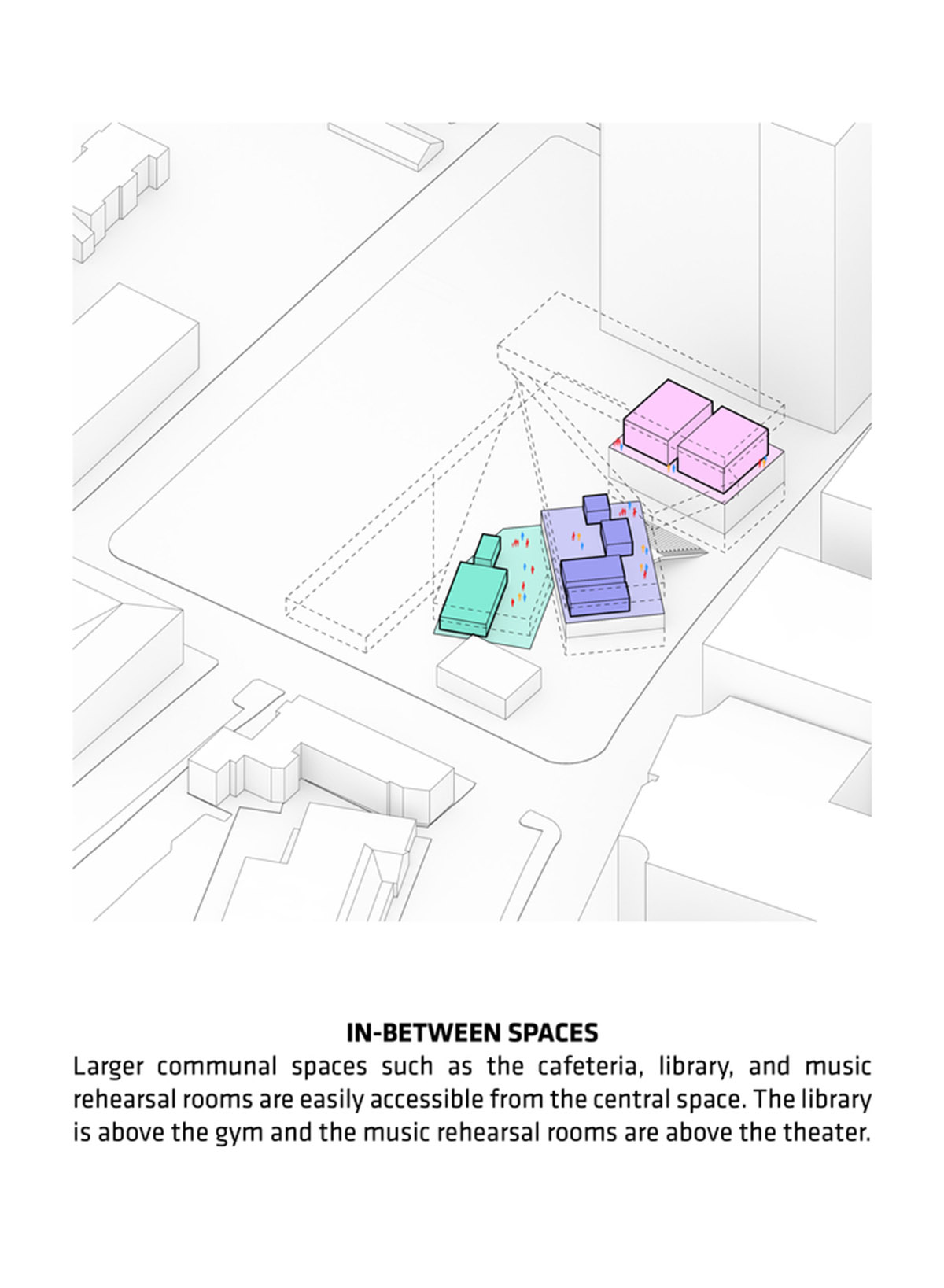
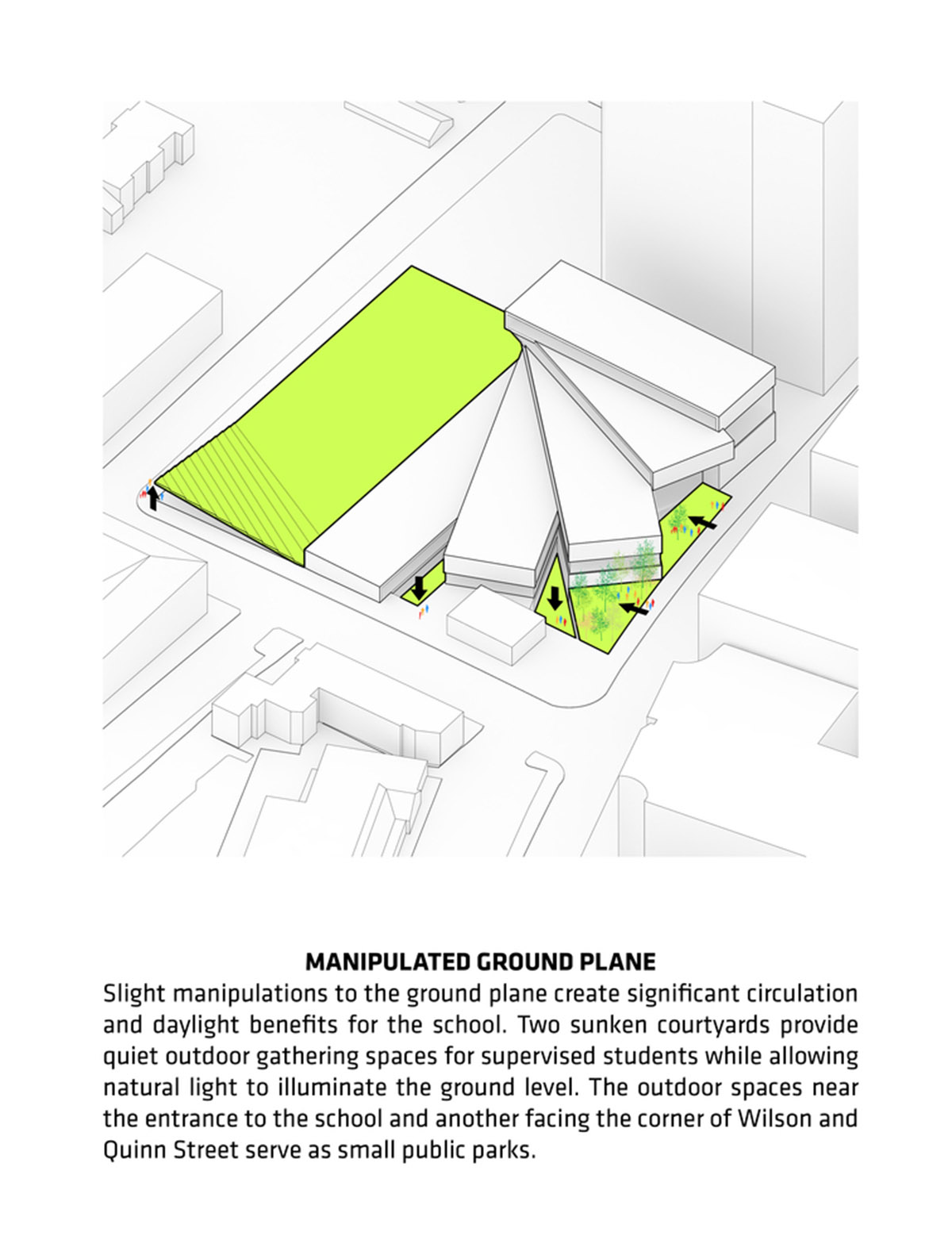

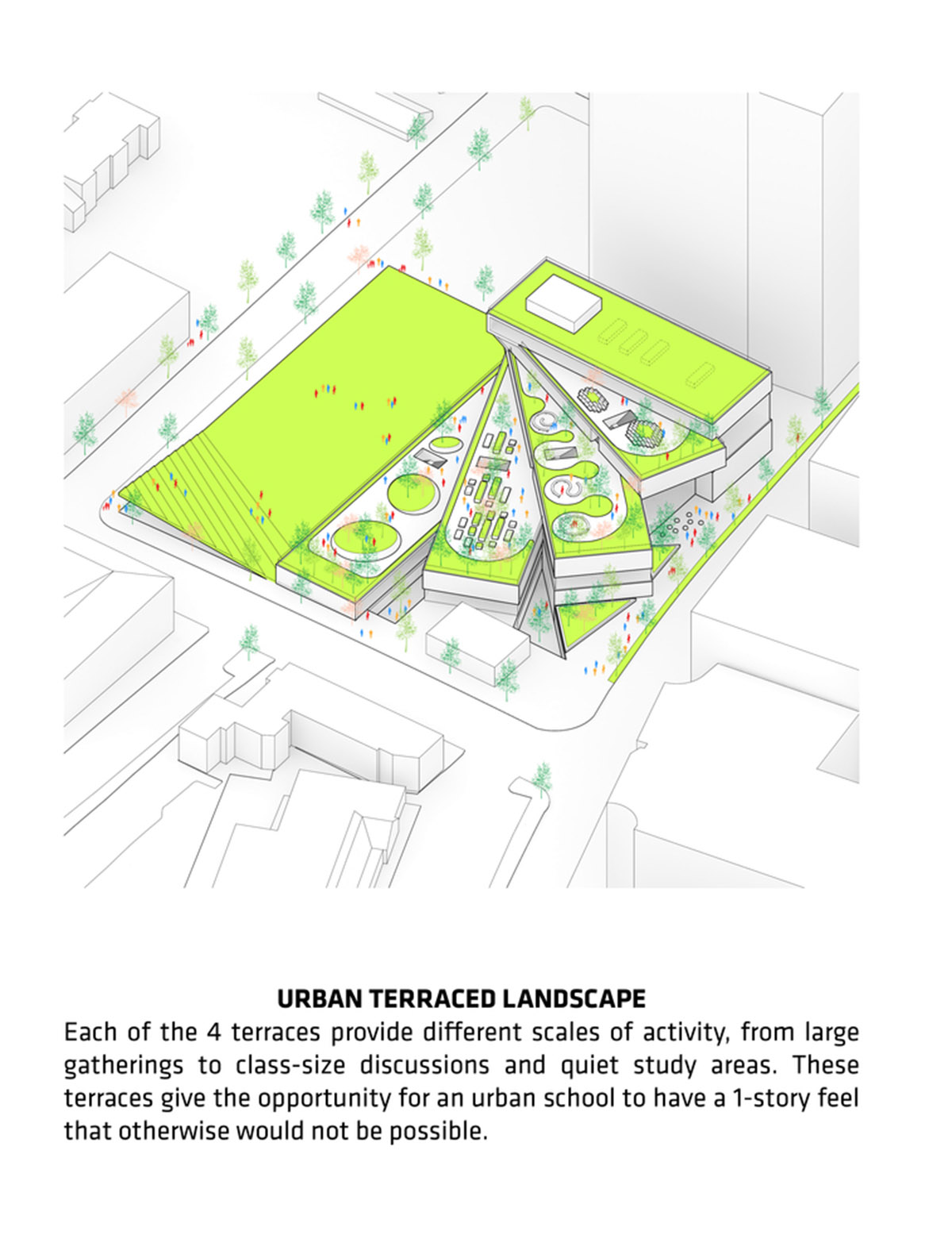
Project facts
Project name: The Heights Building
Architects: Bjarke Ingels Group
Location: Arlington, Virginia, United States.
Client: Arlington Public Schools
Size: 16,700m2
Year: 2019
Partners In Charge: Bjarke Ingels, Daniel Sundlin, Beat Schenk, Thomas Christoffersen
Project Managers: Aran Coakley, Sean Franklin
Project Leaders: Tony-Saba Shiber, Ji-young Yoon, Adam Sheraden
Design Team: Amina Blacksher, Anton Bashkaev, Benjamin Caldwell, Bennett Gale, Benson Chien, Cadence Bayley, Cristian Lera, Daisy Zhong, Deborah Campbell, Douglass Alligood, Elena Bresciani, Elnaz Rafati, Evan Rawn, Francesca Portesine, Ibrahim Salman, Jack Gamboa, Jan Leenknegt, Janice Rim, Jin Xin, Josiah Poland, Julie Kaufman, Kam Chi Cheng, Ku Hun Chung, Margherita Gistri, Maria Sole Bravo, Mark Rakhmanov, Mateusz Rek, Maureen Rahman, Nicholas Potts, Pablo Costa, Ricardo Palma, Robyne Some, Romea Muryn, Saecheol Oh, Seo Young Shin, Seth Byrum Shu Zhao, Sidonie Muller, Simon David, Tammy Teng, Terrence Chew, Valentina Mele, Vincenzo Polsinelli, Zach Walters, Ziad Shehab
Collaborators: Leo A Daly, Robert Silman Associates, Interface Engineering, Gordon, Theatre Projects, Jaffe Holden, Faithful+Gould, GHD, Hopkins Food Service, GeoConcepts, Haley Aldrich, The Sextant Group, Tillotson Design Associates, EHT Traceries, Lerch Bates, Sustainable Design Consulting
All images © Laurian Ghinitoiu
All drawings © BIG
> via BIG
